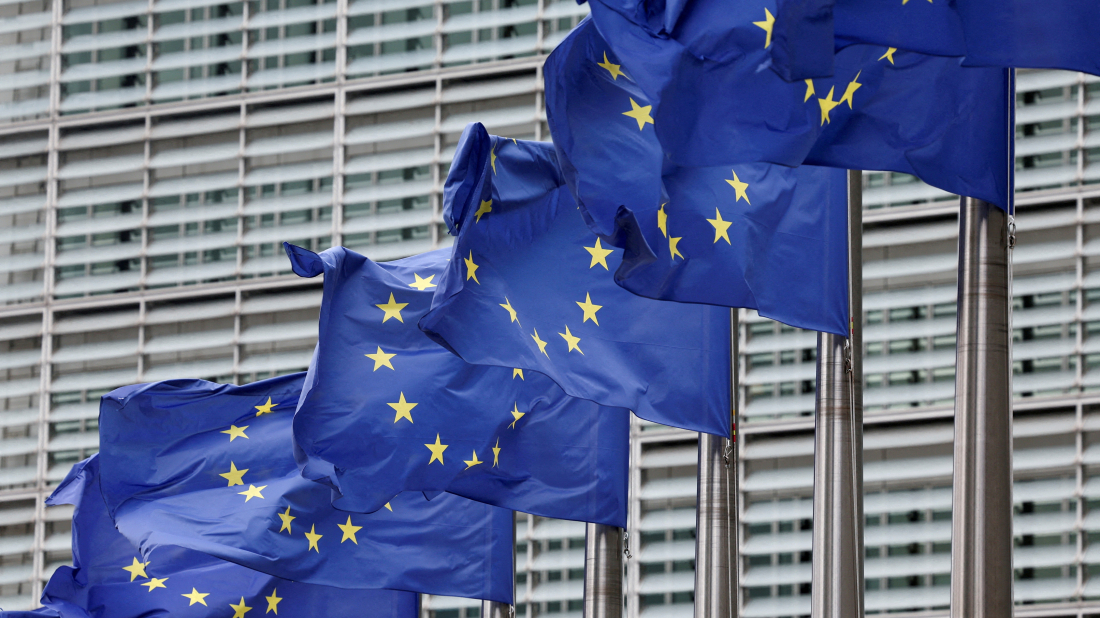Hong Kong and Shanghai to set up cross-border gold trade clearing system
Hong Kong and Shanghai will sign a memorandum of understanding next week to establish a cross-border gold trade clearing system, a move aimed at boost...

The European Commission will delay presenting its next Russia sanctions package, European Union officials said on Tuesday, as the bloc searches for a response to the Trump administration's demand that it phase out purchases of Russian oil and gas faster.
The Commission had been expected to present a 19th package of sanctions to envoys of the 27 EU member states on Wednesday that diplomats said was likely to include Russian banks, Moscow's sanctions-evading "shadow fleet" and listings to stop circumvention in third countries.
No new date has been set for discussions of the package, the official said. The delay was first reported by Politico.
Trump presses EU to end imports of Russian energy
In recent days, U.S. President Donald Trump has cranked up pressure on the EU to cut off energy revenue to Moscow in his efforts to end the war in Ukraine. As Russia's most lucrative source of revenue, its fuel exports have helped to fund the war.
Washington is demanding that the EU impose steep trade tariffs on India and China, the biggest purchasers of Russian oil, and quit importing Russian energy itself.
Europe already plans to end purchases of Russian oil and gas by 1 January, 2028 - a goal it says is ambitious and would ensure that EU countries do not face energy price spikes or supply shortages in the meantime.
But Washington wants the bloc to move faster.
U.S. Treasury Secretary Scott Bessent said on Monday the Trump administration would not impose additional tariffs on Chinese goods to halt China's purchases of Russian oil unless European countries hit China and India with punitive duties of their own.
European officials have said the bloc was very unlikely to impose crippling tariffs on India or China, treating tariffs differently to sanctions.
"It's a challenging proposition (from Trump)," one EU diplomat told Reuters.
"Even if his requests are deliberately excessive, it still forces us to come to terms with them in some kind of way in order to avoid him shifting the blame onto the EU."
Italian Prime Minister Giorgia Meloni said on Saturday (17 January) that concerns over security in Greenland should be addressed within the framework of NATO, describing a ground military intervention as highly unlikely.
Ashley St. Clair, mother of one of Elon Musk’s children, has filed a lawsuit against Musk’s company xAI, alleging that its AI tool Grok generated explicit images of her, including one portraying her as underage.
Egypt and Sudan have welcomed an offer by U.S. President Donald Trump to restart mediation with Ethiopia in a bid to resolve the long-running dispute over Nile River water sharing.
Elon Musk is seeking up to $134 billion from OpenAI and Microsoft, arguing that the companies profited unfairly from his early support of the artificial intelligence firm, according to a court filing made public on Friday.
Poland plans to expand its armed forces to 500,000 by 2039, including 300,000 active-duty troops and 200,000 reservists, officials said Friday. The enlarged force would feature a new high-readiness reserve unit.
Portugal is holding presidential elections with a record 11 candidates, as populist leader André Ventura emerges as a possible front-runner.
Two people were killed and dozens injured in overnight Russian drone attacks across Ukraine, as strikes on energy infrastructure left many regions without power amid freezing temperatures, President Volodymyr Zelenskyy said.
Iran’s state broadcaster was briefly hijacked on Sunday, airing footage of anti-regime protests and a message from exiled crown prince Reza Pahlavi, according to opposition-linked outlets.
Ugandan authorities partially restored internet services after President Yoweri Museveni won a seventh term, extending his rule into a fifth decade.
At least five people have died and dozens were injured after two high-speed trains derailed on Sunday near Adamuz, southern Spain, railway operator ADIF and state media reported.
You can download the AnewZ application from Play Store and the App Store.

What is your opinion on this topic?
Leave the first comment